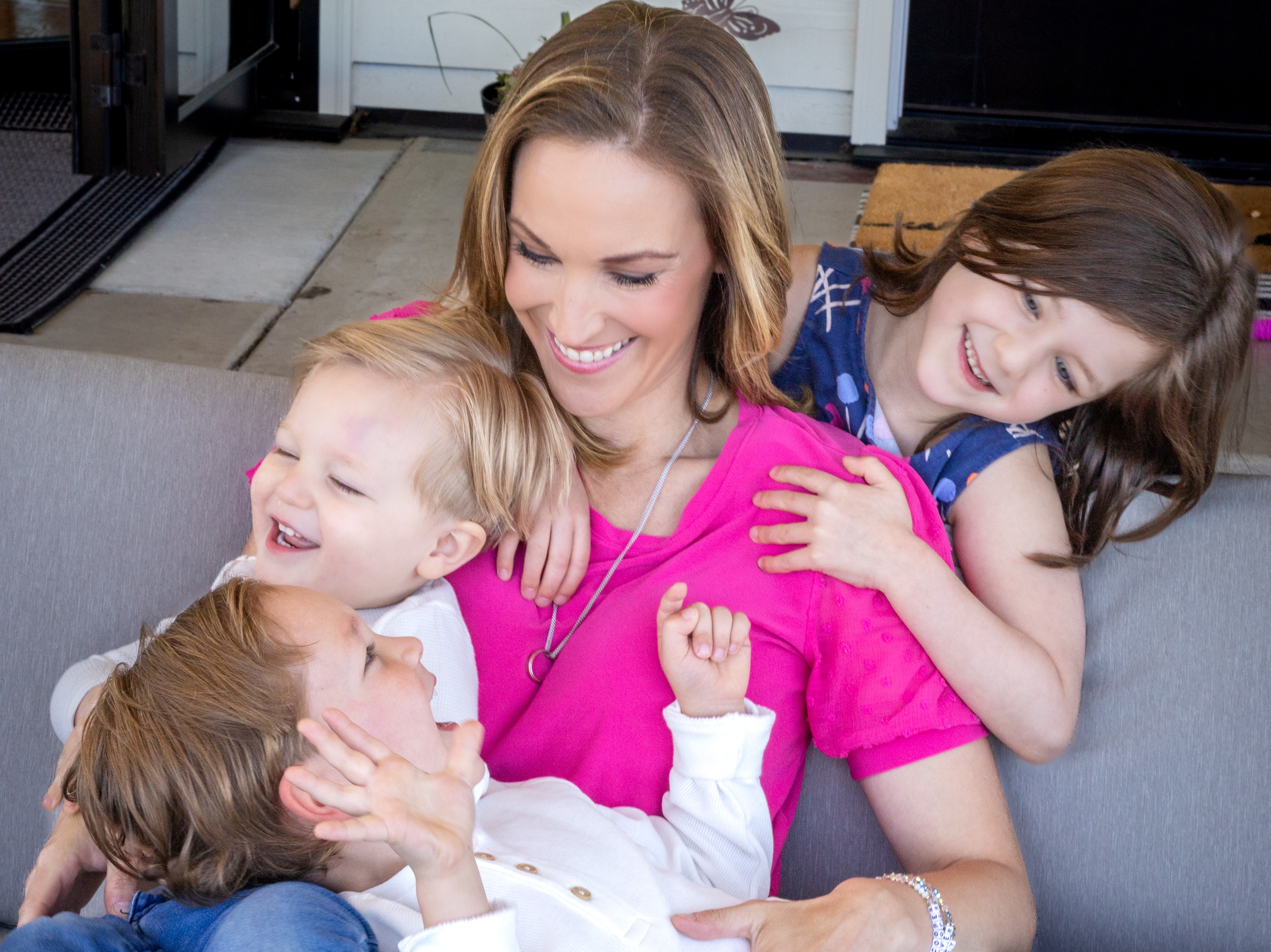Holding the Broken: on Grief, Love, and Community
When life took an unthinkable turn, Kelly Koopmans found herself surrounded by love from a community that refused to let her walk through grief alone. This is a story about loss, strength, and the healing power of showing up.

Kelly Koopmans first met Michael Scholl at Martin Stadium on Washington State University's campus. It was his third month at college, and Kelly spotted him during a Greek life football practice. She didn’t wait for fate to intervene. Instead, she walked right onto the field, cracking a joke while introducing herself. From that moment on, Michael and Kelly became a “we.” That love held strong through long drives between Eugene and the Eastside, through the distance between Washington state and Columbia University while Kelly attended grad school, and into their early “adulting” years. It was a love built by the small, consistent choices to show up for each other, always.
In 2012, when Kelly was offered an anchor position at KOMO, they bought their first home in the Wedgewood neighborhood of Seattle. They married. They started a family. In 2021, when Michael’s parents decided to downsize, Kelly and Michael moved into Michael’s childhood home in Vuecrest. They were set to renovate, optimizing the home for their growing family, until life as they knew it changed.
First, Michael’s mother was diagnosed with cancer. And then, just weeks before she passed, Michael received a stage 4 squamous cell carcinoma diagnosis. He was 37. The diagnosis was equal parts devastating and unthinkable. They tried everything: chemo, radiation, clinical trials; truly anything that would give Michael more time. And even through the chaos of treatment and test results, their lives kept moving. Kelly was still anchoring KOMO’s morning news, waking at 2 a.m. daily. Even through chemo, Michael handled school drop-offs with their three children, ages 4, 2, and 3 months, before heading to work. In August 2024, a final glimmer of hope led them to New York City for potential trials unavailable in Seattle. They stayed with old college friends, found happiness being in the city, and clung to the spark that had always carried them forward.
When they returned to Bellevue, Michael’s health declined rapidly. What followed is what Kelly describes as both sacred and community-defining. The call from Fred Hutch came while Kelly was chatting with her neighbor, Eileen Foley, fresh off sabbatical. Without missing a beat, Eileen sprang into action. “Get the kids in the car,” she said. “I’ll take you.” On the way, Eileen told Kelly something that would shift her entire emotional footing: “You need to be strong for Michael now.” That simple directive, so clear and grounding, was exactly what Kelly needed to hear. In Michael’s final moments, she showed up with all the strength and tenderness he had always given her. Michael passed away quietly on September 9th, 2024. And then, in the rawest time for her and her young family, the people around her did something remarkable. They showed up offering strength and love, too.
Neighbors brought meals, sent cards, shared their stories, and kept showing up, not just for the first few days or a week, but for months. Some hadn’t even known the Scholls before Michael’s passing. And yet, they came, because that’s what people do when given the opportunity. Kelly and her children were wrapped in strong support by their community. “They showed me how to show up for others,” Kelly remembers.
That loving support extended into her workplace, too. Just two weeks after Michael’s passing, Kelly returned to KOMO. She asked to share her grief on air, and her producers gave their full support. The response was overwhelming. Letters, emails, and messages poured in. People who had been grieving silently saw themselves in her story. That’s when Kelly realized something important: we, as humans, don’t talk about grief, even though it may be one of the most profound emotions we as a species experience in a lifetime.
“We need to normalize grief,” she says. “People are walking through it, months, years, even decades later. Most feel like there’s no space for those feelings.” But there has to be space. There has to be a village. For Kelly, that village includes her parents, her kids’ incredible au pair, Dani, and the therapists and child psychologists helping her family heal. It includes KOMO viewers who have opened up about their own losses. It includes every friend and neighbor who offered support in Kelly’s most difficult days.
Michael still lives on in their home in bedtime stories, kitchen table reflections, and whispered “remember whens...” with their now 6, 4, and 2-year-old children. And Kelly continues to show up for others, heart worn not just on her sleeve, but shared boldly, publicly, and generously. What Kelly wants most is to remind us that community isn’t just who you live next to; it’s who holds you when you think you might fall. It’s the meals, the text messages, the simple sentence that brings you back to yourself. Grief will always be hard, but it doesn’t have to be lonely. Because in the hardest moments of life, being truly seen is what keeps us going. Let’s talk about grief. Let’s make room for it. And let’s never underestimate what it means to simply show up.